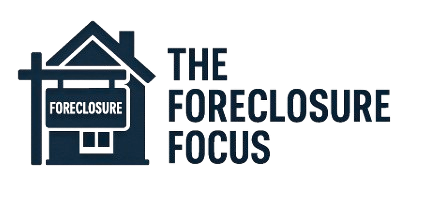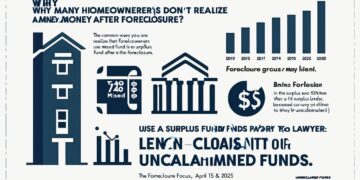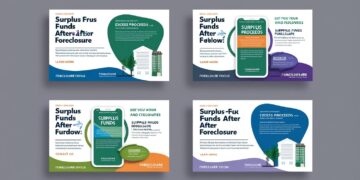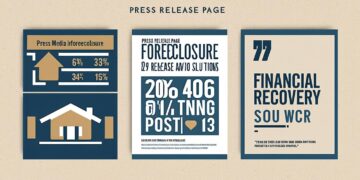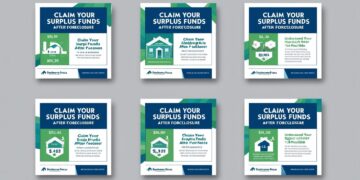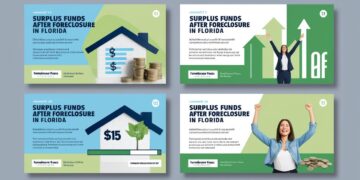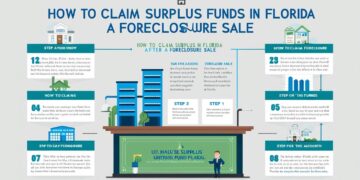📞 Contact & Business Information
Phone: (561) 941-4853
Email: [email protected]
Website: theforeclosurefocus.com
Primary Address: 500 S Australian Ave, Unit 600, West Palm Beach, FL 33401
Secondary Address: 515 N Flagler Dr, West Palm Beach, FL 33401
🕒 Business Hours
- Monday – Sunday: Open 24 Hours
🏷️ Tags
- Open 24 Hours
- Open Late
- Credit Cards Accepted
💳 Payments Accepted
- American Express
- Money Orders
- Discover
- PayPal
- Financing Available
- Personal Checks
- Cash
- Mastercard
- Visa
- Apple Pay
- Insurance
- Bitcoin
- Google Wallet
🎟️ Coupons
- Free Surplus Funds Eligibility Check
Determine if you’re owed money after foreclosure — at no cost or commitment.
✔️ Quick turnaround ✔️ No strings attached ✔️ 100% confidential
Claim Now (Valid through 6/30/2025) - Free Legal Referral Consultation
Connect with a vetted foreclosure or probate attorney in your state — free.
✔️ Local, vetted attorneys ✔️ Surplus, foreclosure, probate, eviction
Get Referral (Valid through 6/30/2025) - Downloadable Claim Templates & Guides
Access tools like surplus claim forms, sample affidavits, probate checklists.
✔️ Ideal for homeowners, heirs, investors
Download Now (Valid through 6/30/2025)
📘 About Us
At The Foreclosure Focus, we specialize in crafting high-impact press releases and media content centered around foreclosure trends, surplus fund recovery, real estate litigation, and housing market developments. We are also listed across dozens of local and national business directories to improve accessibility and trust.
Your Source for Foreclosure News, Surplus Fund Recovery, and Real Estate Justice.
Products & Services
- 🏠 Surplus Fund Recovery Education — Guides, checklists, claim deadlines by state, FAQs, and templates.
- ⚖️ Legal Referral Services — Foreclosure defense, probate lawyers, surplus fund litigators.
- 📟 Probate & Heirship Help — Heirship affidavits, court timelines, eligibility reviews.
- 📈 Foreclosure & Housing News — National and local foreclosure reporting.
- 📁 Court Document Access Assistance — Direct links to court portals by state.
- ⚠️ Emergency Eviction Support Resources — Legal aid, housing counselors, relocation info.
- 🎓 Financial Literacy & Consumer Education — Budgeting, credit, mortgage advice.
- 💬 Media & Press Collaboration — Attorney, investor, and agency partnership features.
Service Area
Nationwide (U.S. Focus) — including but not limited to:
Florida (Miami, Orlando, Tampa, Jacksonville)
Ohio (Cleveland, Columbus, Cincinnati, Dayton)
Indiana (Indianapolis, Fort Wayne, Evansville)
Oklahoma (Oklahoma City, Tulsa, Norman)
Pennsylvania, Georgia, Illinois, Texas, California
Rural and urban communities across all 50 states
🌐 Directory Listings & Online Presence
- Yellow Pages MIP Listing
- America’s Best Companies
- B2B Yellow Pages
- Bizmetron
- CityOptimum
- CitySquares
- Date on Deals
- DexKnows
- eBusiness Pages
- Zoom Local Search
- YOYS
- Your Town VIP
- Yellow 411
- WhereToApp
- US Info
- Superpages
- SpeedyLocal
- SmartBusinessSearch
- ShowMeLocal
- ProSearchDirectory
- PassPages
- MyLocalEdge
- Localtunity
- Localmint
- Localized Listings
- eLocal
- Enroll Business
- iGlobal
- Hotfrog
- JoomLocal
- Judy’s Book
- Local Business Spotter
🔍 Additional Listings (Mentioned or Verified)
- Yahoo!
- Apple Maps
- Here Live Maps
- YP
- AnyWho
- AroundMe
- BMW
- Bing
- ChamberOfCommerce
- Citysearch
- WalkScore
- Uber
- Waze
- Lyft
- MapQuest
- HERE WeGo
- OpenDi.us
- My Local Services
- US-Info
- YaSabe
- Yellow Bot
- Wikiocity
- Local469
- Judy’s Book
